The Human Rights Education Program for Women in Turkey
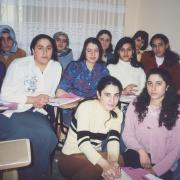 Women for Women’s Human Rights (WWHR)-New Ways in Turkey gained the support and use of government resources for furthering human rights education of women at the local level. WWHR-New Ways developed a highly successful human rights education curriculum for women. They developed a partnership with government run, local level community centers, these community centers offered not only professional social workers who could be trained by WWHR-New Ways in facilitating the human rights education curriculum, but also a safe and accessible place for women to learn about their rights.
Women for Women’s Human Rights (WWHR)-New Ways in Turkey gained the support and use of government resources for furthering human rights education of women at the local level. WWHR-New Ways developed a highly successful human rights education curriculum for women. They developed a partnership with government run, local level community centers, these community centers offered not only professional social workers who could be trained by WWHR-New Ways in facilitating the human rights education curriculum, but also a safe and accessible place for women to learn about their rights.


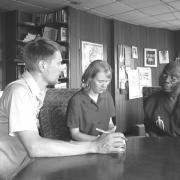 The Advocactes for Human Rights (formerly known as the Minnesota Advocates for Human Rights) uses traditional human rights monitoring methods to document human rights abuses. The group has also made a practice of adapting this methodology to emerging human rights issues. Minnesota Advocates has identified and developed practical and sustainable strategies for adapting human rights monitoring methods to address domestic violence (in Eastern Europe and the U.S.), child survival (in Mexico, Uganda and the U.S.) and transitional justice (in Peru).
The Advocactes for Human Rights (formerly known as the Minnesota Advocates for Human Rights) uses traditional human rights monitoring methods to document human rights abuses. The group has also made a practice of adapting this methodology to emerging human rights issues. Minnesota Advocates has identified and developed practical and sustainable strategies for adapting human rights monitoring methods to address domestic violence (in Eastern Europe and the U.S.), child survival (in Mexico, Uganda and the U.S.) and transitional justice (in Peru).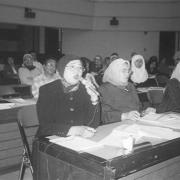 The National Working Group for Human Rights Dissemination and Promotion (NWG) in Indonesia developed a human rights education curriculum for all age levels in both public and private schools. In order to create support for instituting such a human rights curriculum that also encompassed religious educational institutions, an effective tactic was to engage key and respected agents of change—community and religious leaders as well as teachers—in the development and training of a human rights curriculum.
The National Working Group for Human Rights Dissemination and Promotion (NWG) in Indonesia developed a human rights education curriculum for all age levels in both public and private schools. In order to create support for instituting such a human rights curriculum that also encompassed religious educational institutions, an effective tactic was to engage key and respected agents of change—community and religious leaders as well as teachers—in the development and training of a human rights curriculum. 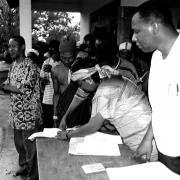 Trokosi, in Ghana, is a system of servitude that meets the community need for justice and the material and sexual needs of fetish priests. Customary or traditional practices based on deep-seated beliefs, such as Trokosi, are often the more difficult human rights violations to eradicate. Trokosi is when women and young girls are brought and kept in fetish shrines to atone for sins or crimes allegedly committed by one of their relatives. The Commission on Human Rights and Administrative Justice (CHRAJ) recognized that legislation outlawing such practices may not be effective and may, in some cases, result in driving a customary practice further underground.
Trokosi, in Ghana, is a system of servitude that meets the community need for justice and the material and sexual needs of fetish priests. Customary or traditional practices based on deep-seated beliefs, such as Trokosi, are often the more difficult human rights violations to eradicate. Trokosi is when women and young girls are brought and kept in fetish shrines to atone for sins or crimes allegedly committed by one of their relatives. The Commission on Human Rights and Administrative Justice (CHRAJ) recognized that legislation outlawing such practices may not be effective and may, in some cases, result in driving a customary practice further underground. 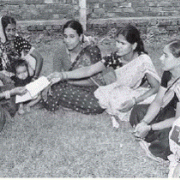 The Centre for Victims of Torture (CVICT) in Nepal instituted a tactic to circumvent the problem of police abuse through a process of rights-based community mediation. This community mediation process was piloted in three districts of the country. CVICT adapted the general community mediation process to meet the specific needs of women through instituting Women’s Peace Committees.
The Centre for Victims of Torture (CVICT) in Nepal instituted a tactic to circumvent the problem of police abuse through a process of rights-based community mediation. This community mediation process was piloted in three districts of the country. CVICT adapted the general community mediation process to meet the specific needs of women through instituting Women’s Peace Committees.